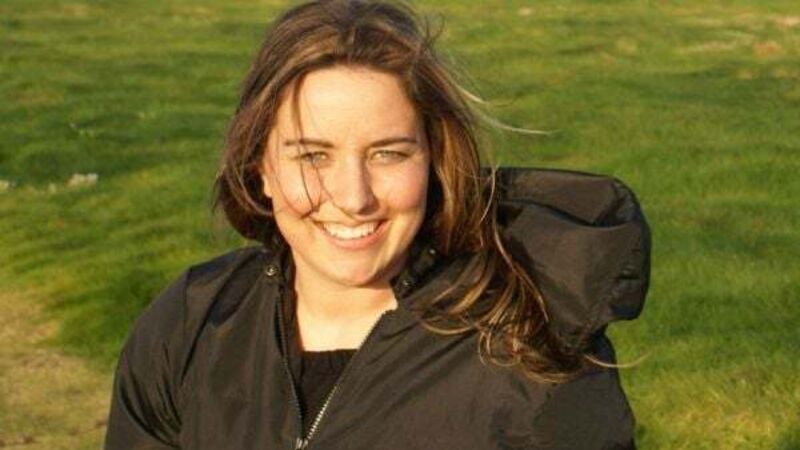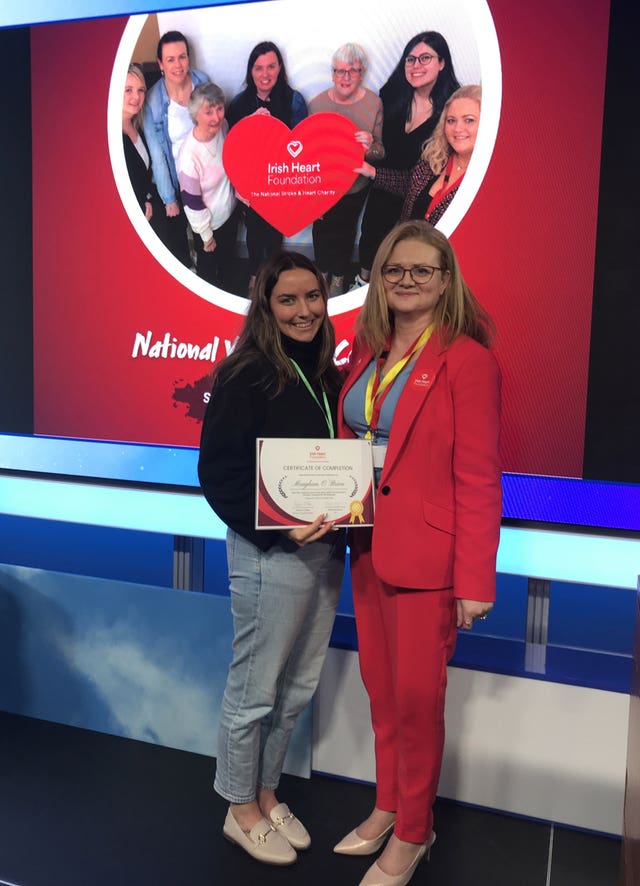Woman who learned to walk again after stroke at 22 advocates for patient needs

By Claudia Savage, PA
A bride-to-be who suffered a devastating stroke is on a mission to have “invisible” patients listened to within the health system.
Meaghan O’Brien was just 22 when she collapsed after starting a gym session, but recognised the signs of stroke such as facial drooping and left arm weakness.
Paramedics had to wheel her past her mother, who was waiting to start a class in the same gym, before she was taken to hospital and given thrombolysis, a clot-busting drug.
Ms O’Brien, who is originally from Boston, in the US, but now lives in Dingle, is due to marry her fiance next year.
She recently graduated as an Irish Heart Foundation patient champion, to amplify the often-unheard views of heart and stroke patients.
After her stroke in the US in January 2013, she was flown by medical helicopter to a Boston hospital.
“I was in ICU and surrounded by doctors and machines, it was so scary. I couldn’t do anything, I couldn’t sit up, go to the toilet or move my head,” she said.
A week later, Ms O’Brien’s family was given the devastating news that she would never walk again.
“When practising walking up and down the corridors, I was surrounded by people in their 70s and 80s. I asked myself, ‘why am I here?’,” she said.
Now 32, she has defied doctors, regaining the ability to walk and returning to her IT job.
Ms O’Brien and 11 other patients have graduated from the Patient Champion programme, part of the charity’s investment in heart and stroke patients.

They will advocate for fellow patients and lobby TDs and Senators to ensure their needs are taken into account when policy decisions are being made about their care.
“I would have benefited so much from the programme if it was developed when I had my stroke,” she said.
“I’m here for those patients now, to support them. No patient should be told they can’t do something, as mindset is so important to recovery.”
The Irish Heart Foundation’s advocacy campaign manager, Pauline O’Shea, who was diagnosed with heart failure in 2012, said many patients feel “unheard, invisible and disempowered” within the health system.
“This programme, and our organisation’s commitment to ongoing peer and professional advocacy support for patients, provides a natural hub for heart and stroke patients from all over Ireland to come together and work for changes needed in cardiac and stroke care, of which there are many,” she said.
“Patients’ challenges often extend beyond medical issues and can lead to financial stress, mental health difficulties and relationship breakdown.
“We often have people making decisions about patients’ lives without any patient input.”









